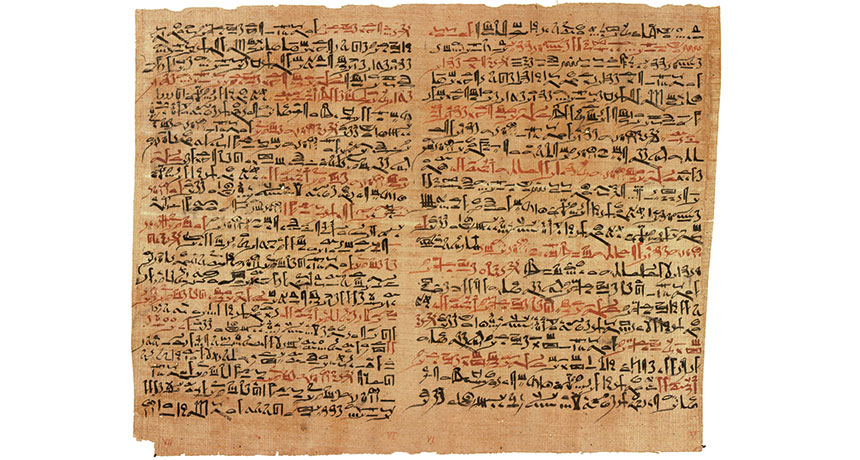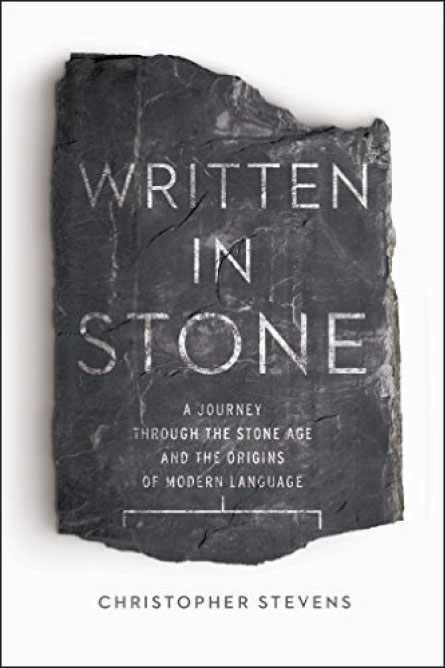
THEN AND NOW Words from ancient languages, such as those on this approximately 3,600-year-old Egyptian papyrus, have transformed and carried forward into modern languages.
Jeff Dahl/Wikimedia Commons
 Written in Stone
Written in Stone
Christopher Stevens
Pegasus Books, $27.95
All these words we speak arose somewhere. But what do acrid, acme and acrophobia have in common? They all derive from the ancient Indo-European word ak, which meant sharp, quick or high and pointy.
Imagine such a language, sprinkled with onomatopoeia. Ak sounds sharp. Mei, the ancient word for smile, goes nicely with the facial expression used in saying it. In English, mei lingers on in things that make us smile, like a miracle or a mirror. The ancient opposite was wa, a crying sound that meant empty. It’s still present in want, to be without.
In Written in Stone, journalist Christopher Stevens traces root terms from ak to wid, providing anecdotes as guideposts. The old word ten, for example, harks back to nomadic times, when tents provided movable towns for people pursuing a herd. These were light shelters made of animal skins stretched tight. In Latin, tendere meant “to stretch,” as in tendering an offer. In Gaelic, tana meant flimsy and stretched out, not far from the old English thynne, or thin. Tents were worthless if not pegged down, and today “to hold” in French is still tenir. Tentacles hold things, as does anyone with tenacity.
Just when this glossary of a book seems to grow long, the reader finds a dandy word such as spek — which was all about seeing things. Looking closely can reveal a speck, but you might need spectacles. “If people look up to you, that’s respect,” Stevens notes. “If they look askance, that means they suspect you.” It’s a matter of perspective.
But wait, there’s mor. The Indo-European word meant grief, and it traces to mortality. Then comes moribund, morgue, postmortem, mourning and even some remorse.
A true etymologist might see this as so much old news, but Stevens puts Sanskrit, Latin and Greek to good use as bridges to modernity. For instance, the ancient word rud, meaning red, found its way into Latin as rudis, or raw — like red meat. The smiley word mei acquired an “s” long ago in Sanskrit, where smayate translates as “he is smiling.”
But Stevens can be Anglocentric. He refers to the ancient word arg as shiny, like some metals. Fair enough, but then he cites argent as an archaic English word for silver. Actually, it’s from the Latin argentum. And in France, argent still means money.
As for wid, this archaic word morphed into wise. In Germanic languages, wits were essential to get by, lest you lose them. One who saw things clearly in old English was a witness. And as “w” became “v” in Latin, wid led to videre, to see. That led to visible and the video world we live in. As for the Greeks, they shortened wid to –id and came up with idea, a different kind of vision.
Buy Written in Stone from Amazon.com. Sales generated through the links to Amazon.com contribute to Society for Science & the Public’s programs.







